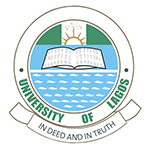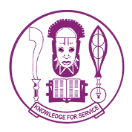Detailed introduction of the University of Nigeria:
Introduction
The University of Nigeria, referred to as UNN, is a federal university in Nsukka, Enugu State, eastern Nigeria. It is the first fully indigenous and autonomous university in Nigeria and one of the five most prestigious universities in Nigeria.
Overview
Campus distribution: There are four campuses, the main campus is located in Nsukka, the second campus is located in Enugu, and there is a teaching hospital campus in Ituku-Ozara, and the Aba campus in Abia State.
Student and faculty scale: There are more than 1,519 academic staff and a total of about 36,000 students, including undergraduates and postgraduates.
Professional settings: 108 undergraduate courses and 211 postgraduate courses are offered.
History
Founded: Founded by Nnamdi Azikiwe in 1955 and officially opened on October 7, 1960.
Development history: At the height of Nigeria's independence celebrations, Princess Alexandra of Kent held an opening ceremony on behalf of Queen Elizabeth II and laid the cornerstone of one of the university's early buildings. Initially modeled on the American education system, it gradually became an important force in Nigeria's higher education during its development.
School Strength
Faculty: There are 1,519 academic staff, including many professors and scholars with high reputations in domestic and international academic circles.
Scientific Research Results: Extensive research has been carried out in many fields, and a series of important scientific research results have been achieved, which have a certain influence in Nigeria and internationally.
Institutional Nature
A public comprehensive university funded and managed by the Nigerian federal government.
Educational Philosophy
With the motto of "restoring human dignity", it is committed to cultivating well-rounded talents with innovative spirit, critical thinking and social responsibility, emphasizing the cultivation of academic excellence, knowledge innovation and practical ability.
Key Laboratories and Disciplines
Key Disciplines: Agricultural sciences, medicine, engineering, social sciences and other disciplines have a high reputation and influence in Nigeria and even in Africa.
Key laboratories: There are several national and university-level key laboratories, such as the Agricultural Research Laboratory, the Medical Research Center, and the Engineering Technology Laboratory.
Faculty
The university has 15 colleges covering a wide range of fields, including humanities and social sciences, natural sciences, engineering technology, medicine, and agriculture.
Rankings
According to the Times Higher Education (THE) World University Rankings 2025, Nigerian universities are not among the top 1,000 in the world, but are ranked in the top 5 in Nigeria.
Costs
Tuition fees: Depending on the major, the tuition fee for undergraduate courses is approximately 15,000 to 25,000 Nigerian naira per year, and the tuition fee for postgraduate courses is approximately 15,000 to 30,000 Nigerian naira per year.
Living expenses: The monthly living expenses are approximately between 50 and 3,000 CFA francs.
Campus environment
Architectural style: The campus architecture is diverse, combining modern and traditional elements.
Campus facilities: It has complete teaching facilities and living facilities, such as library, laboratory, multimedia classroom, student dormitory, canteen, gymnasium, sports field, etc.
Natural landscape: The campus is shaded by green trees, lush flowers and plants, and has a beautiful environment, providing students with a quiet and comfortable learning and living environment.
-

University of Lagos
-

Benson Idahosa University
-

Bauchi State University
-

Federal University of Technology, Akure
-

Tai Solarin University of Education
-

University of Benin
-

Bayero University Kano
-

Ahmadu Bello University
-

Madonna University
-

Redeemer's University
-

Mesoamerican University
-

Istmo University
-

Mariano Galvez University of Guatemala
-

Regional University of Guatemala
-

Galileo University
-

Francisco Marroquín University
-

Rafael Landívar University
-

University of the Valley of Guatemala
-

University of San Carlos of Guatemala
-

Technological Institute of Tlaxcala Plateau
-

Golfo University
-

Technological University of South Sonora
-

Technological University of Huejotzingo
-

Tizimín Institute of Technology
-

Chilpancingo Institute of Technology

